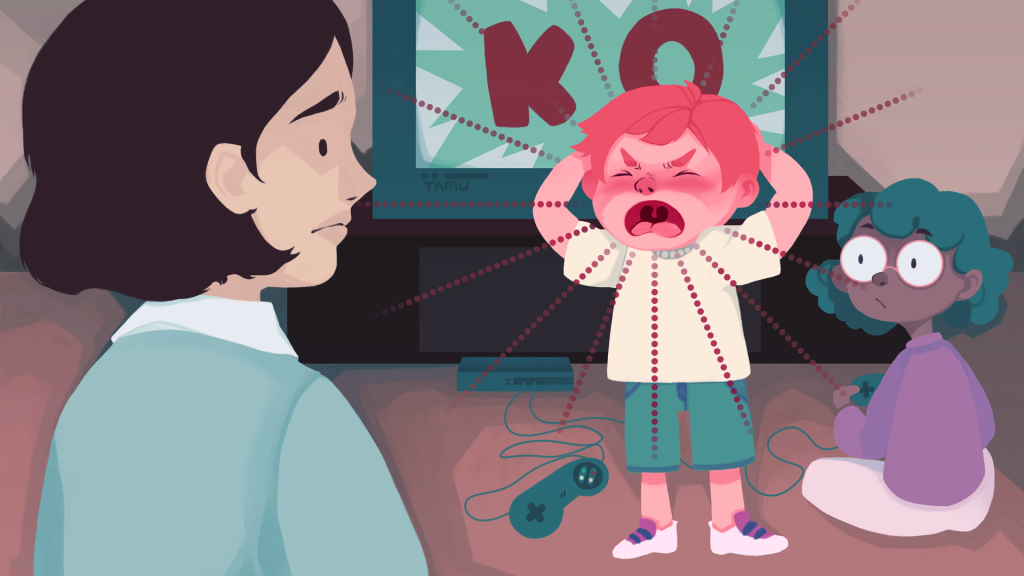How do self-control issues influence behavior problems in children?

Using various lab tests and feedback from parents, faculty in the College of Education and Human Development have been able to measure the true impact of self-control on behavior problems.
Jeffrey Gagne, assistant professor in the Department of Educational Psychology, began the TEXAS Family Study in 2012. Focusing on child self-control, Gagne worked with 200 preschool-aged siblings and their families.
Self-control is the ability to control your emotions, thoughts and behaviors – the quality that allows you to stop yourself from doing things you want to do but that might not be in your best interest.
Gagne admits studying self-control can be complicated because there are two theories of research. The first focuses on thinking and cognition, memory and the brain. The second focuses on socio-emotional development such as the management of emotions.
“Some children have more difficulty with the cognitive aspect, such as thinking, and others have more difficulty with how they interact with others and how they feel emotions like anger and fear,” explained Gagne.
Gagne captured both theories through the TEXAS Family Study by looking at both lab observations and parent statements, which few other research studies have done.
“Observational ratings are nice because we’re actually capturing the behavior in the lab. The problem with the lab is that it’s an artificial situation and the child might be having a bad day. The problem with parent ratings is they are biased – both positively and negatively,” said Gagne. “Neither one of those methods is ideal, but using both can give you more comprehensive results.”
Children who have difficulties with self-control or have low levels of self-control tend to have more behavior problems, such as ADHD. While this is not a new finding, Gagne’s study found the results across multiple measures, providing greater evidence of the connection.
Through data collected from parents in the study, including parent depression symptom measures, researchers found increased levels of certain mental health symptoms impacted the relationship between children’s self-control and behavioral problems.
“We don’t diagnose children in this study. We have what are called behavior problems measures that allow us to evaluate externalizing and ADHD-related behavior problems.”

